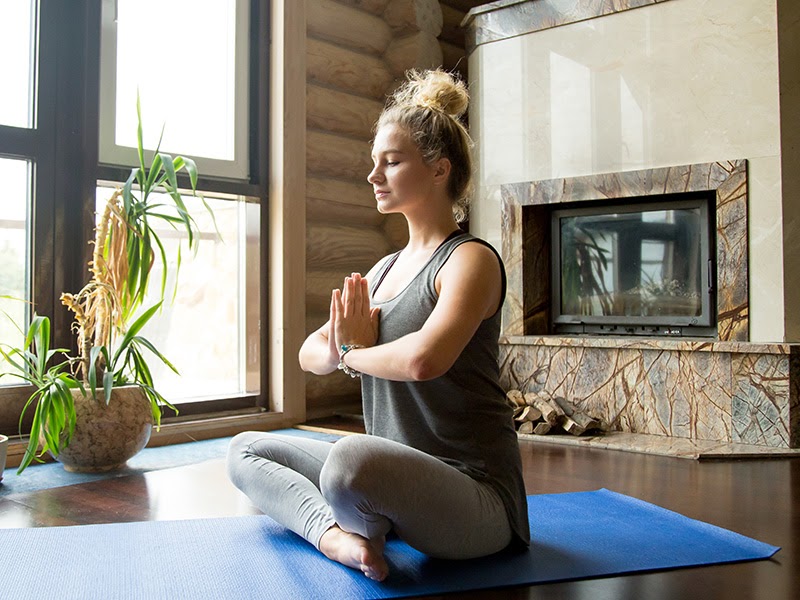The year of 2020 has tested everyone’s mental fortitude. With the COVID-19 pandemic sweeping through a heavily politically divided America, it can seem as if we are at constant odds with each and every person we run into. As public places close and people work from home more often in order to slow the spread of the novel coronavirus, social isolation has been ramped up.
Healthcare workers have been working in overdrive, and more stressors have been placed on workers that were deemed “essential.” With all the craziness going on in the world, it makes sense that people are seeking out a multitude of ways to decrease their stress and anxieties. There is a common misconception that finding effective ways to manage your stress has to be time-consuming or expensive. This could not be further from the truth! There are plenty of no to low cost activities and exercises that you can perform in order to effectively manage your stress.
What are some ways in which I can manage my stress?
The possibilities are endless in ways to manage your stress in a non-stressful manner. However, in the mother of all ironies, oftentimes learning to manage your stress can be a demanding task in and of itself. Although the task can be daunting, controlling your stressors is a crucial part of holistic mental, as well as physical, health. This is especially true for people working in a medical or counseling setting; the caregivers need to take care of themselves in order to care for everyone else!
In simple terms, anything that you enjoy doing that does not involve your daily work life can be considered stress management. Naturally, these types of activities deviate from person to person, and some focus more on physical health while others revolve around rest. It can take some trial and error, but if you attempt enough of these potential hobbies you will eventually find a healthy way to manage your stress!

1. Establishing a Healthy Sleep Schedule
One of the most essential—and everyone’s favorite—aspect of maintaining health and controlling stress is without a doubt sleep! A study performed by the University of Pennsylvania has shown that people who are consistently sleep deprived are more stressed, angry, sad, and mentally exhausted. The results of the research also showed that people who are under frequent and constant stress are more likely to have sleep issues.
With all of that in mind, it makes sense that establishing a consistent and healthy sleep routine can lay the foundation needed for more effective stress management strategies. Try to go to bed at the same time every night and wake up at the same time every morning. If you find yourself having difficulty reaching sleep, put down your electronics a half an hour before you go to bed and brew yourself a cup of tea; you’ll be out in no time!
2. Get outside!
Legally Blonde’s Elle Woods was right—exercise gives you endorphins, and endorphins make you happy! Whether or not people like to admit it, everyone knows that exercise is a great way to manage your stress. These hormones, produced in the brain’s pituitary gland, activate opioid receptors that bring about a sense of overall well-being. This generalized feeling of euphoria can be a key tool in effectively managing stress. But if you don’t want to hit the gym everyday—fear not. Studies have shown that even taking a brisk and brief walk around your neighborhood stimulates the same level of endorphins as intense gym workouts.
3. Invest some time in your hobbies
How much fun is someone who is all work, and no play? Probably not much fun at all. If you find yourself becoming a workaholic whose life is dominated by work stressors, try taking a step back. Dedicate a certain amount of time each week into doing something just for you. It can be an artistic hobby, exercise, or even just taking some time to binge watch your favorite television show. Or, if you are feeling ambitious, you could even strike up a new pastime! Despite what you choose, it is very important to carve out some “me-time” more often than not in order to function more productively and with less stress.
4. Journaling
Journaling is often touted as one of the most effective stress coping mechanisms, and with good reason. Writing down your innermost thoughts on paper is a fantastic way to clarify your thoughts and identify your biggest stress triggers. Not only does journaling have immense mental health benefits, but it can also positively impact your physical health as well by reducing symptoms of conditions like asthma and arthritis while strengthening your immune system. So, the next time you leave the office after a bad day, curling up with some paper and a pen may be all you need in order to lower your stress levels.
5. Yoga
Saving the best for last, yoga is the ultimate stress relieving tool. A powerful combination of physical poses, breathing techniques, and meditation, yoga has been promoted as one of the best ways in order to lower your stress. No matter your fitness level, yoga is an effective practice for people of all ages. Beginners are recommended to utilize hatha yoga, a basic and slower form of yoga that does not require all of the complex moves that the practice sometimes demands. If you’d like to practice yoga on your own, simply search on YouTube for a video that fits your
experience level and desires.

At the end of the day, finding the most effective low-stress stress management is ultimately a very personal decision. What works for someone else may not work for you, and that is okay! But in order to more effectively cope with your stress, it is important to your overall health that you discover an activity or way to help you decompress.
